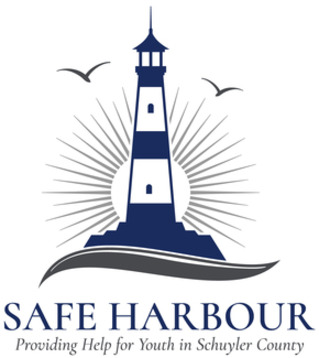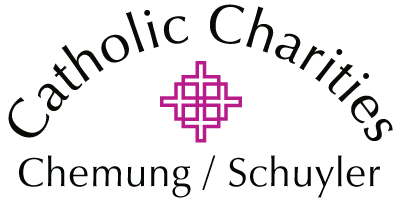
Hours: Monday – Friday: 8:30am – 4:30pm (please call to schedule an appointment)
Location: Catholic Charities’ Main Office, 105 Ninth St, Unit 20, Watkins Glen, NY
Contact: 607.535.2050; Call or text our 24/7 Hotline: 607.742.9629

Based on the assessment questions, or your observations, if you see any potential red flags, contact the National Human Trafficking Hotline at 1-888-373-7888 for specialized victim services referrals or to report the situation.
The presence of these red flags is an indication that further assessment may be necessary to identify a potential human trafficking situation.
Safe Harbour Human Trafficking Awareness and Help (Schuyler County)
Safe Harbour Program (Chemung County)
Our Safe Harbour Program provides 24-hour intervention services for any Schuyler County youth, ages 10—24, who is homeless or is at risk of running away from home.
Services include:
- Appointment Transportation
- Conflict Resolution/Mediation
- Emergency Services (Food, Clothing, Safety Planning)
- 24/7 Hotline: 607-742-9629 (call/text)
- Referrals (employment opportunities, intensive counseling, mediation, educational/GED programs, alternative housing.
Additional Resources:
- National Runaway Safeline: 1-800-RUNAWAY – For teens who are thinking of running away from home, have friends who left home, or who left home and want to go back. Anonymous and confidential.
- NYS Domestic & Sexual Violence Hotline: 1-800-942-6906 (24/7) (English & Español, Multi-language Accessibility, 711 National Relay Service if you are Deaf or Hard of Hearing)
- National Center for Missing & Exploited Children: 1-800-THE-LOST – Receives reports of missing youth and tips about missing and sexually exploited children. Relays tips to law enforcement representatives and provides support to the families of missing youth.
- National Human Trafficking Resource Center: 1-888-373-7888 or text BeFree (233733) – Accepts tips of trafficking situations, crisis calls from survivors, and calls from law enforcement and service providers.
- Safe Harbour – Program of Catholic Charities and local DSS to raise awareness of the issue of human trafficking and provide support to survivors.
- Safe Harbour – Program of Chemung County Youth Bureau to raise awareness of the issue of human trafficking.
- Suicide Awareness For Everyone (SAFE) is devoted to connecting people to prevention, intervention, and recovery by providing education, support, and advocacy to reduce the suicide rate in Schuyler County.
Download our brochure here.
This program is in partnership with the Schuyler County Youth Bureau.

